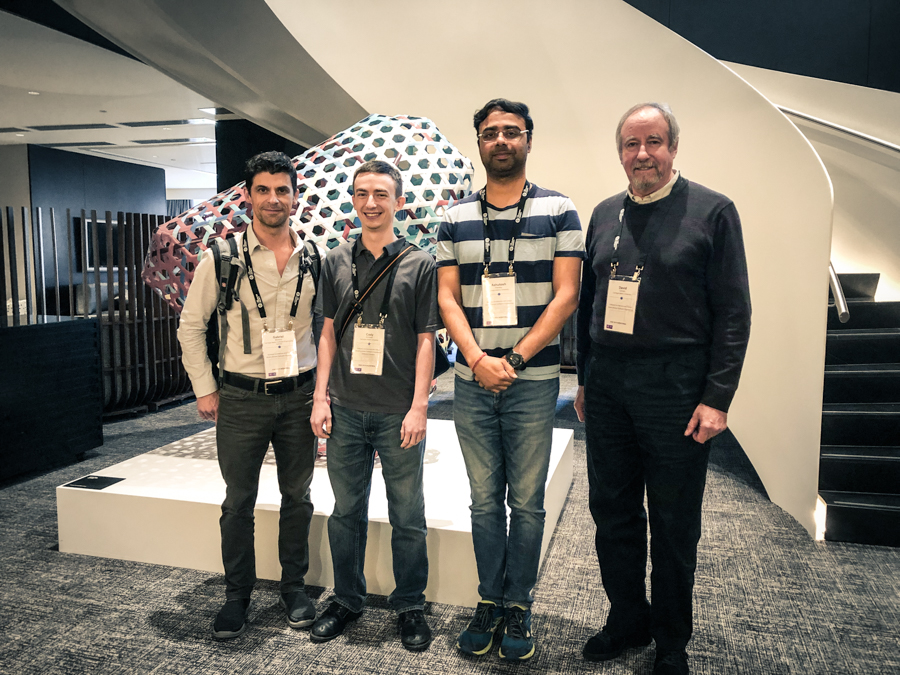
ISR Researchers Claim Top Prize at SEAMS
By Jen Potter and Josh Quicksall
Gabriel Moreno (SE Ph.D. ‘17), Senior Researcher at the Software Engineering Institute; Ashutosh Pandey and Cody Kineer, students in the Software Engineering Ph.D. program; and David Garlan, faculty member in the Institute for Software Research, took home the Best Artifact Award at the 2019 International Symposium on Software Engineering for Adaptive and Self-Managing Systems (SEAMS) held in Montreal last month.
Started in 2006, the symposium aims to bring together researchers and practitioners from diverse areas to investigate, discuss, and examine the fundamental principles, the state of the art, and critical challenges of engineering self-adaptive and self-managing systems.
The Best Artifact prize seeks to encourage members of the software engineering community to build artifacts which, in turn, drive further engagement between members of the community on the basis of their research and its results. Artifacts — such as tools, data repositories, and frameworks — are evaluated on their completeness, how well they are documented, if the study is repeatable by the same team, and if available online, whether the findings can be replicated by other researchers.
Developed in the context of the DART (Distributed Adaptive Real-Time) Systems project at the SEI, the team’s award winning artifact DARTSim is a high-level simulation tool designed to be used by researchers to evaluate and compare self-adaptation approaches intended to address the unique challenges of smart cyber-physical systems. The TCP-based interface is easily integrated with external adaptation managers and has fast simulation capability, qualities ideal for research. DARTSim implements a high-level simulation of a team of unmanned air vehicles performing a reconnaissance mission in a hostile and unknown environment.
To learn more about the award winning reusable artifact, read Moreno, Pandey, Kineer, and Garlan’s paper DARTSim: An Exemplar for Evaluation and Comparison of Self-Adaptation Approaches for Smart Cyber-Physical Systems.